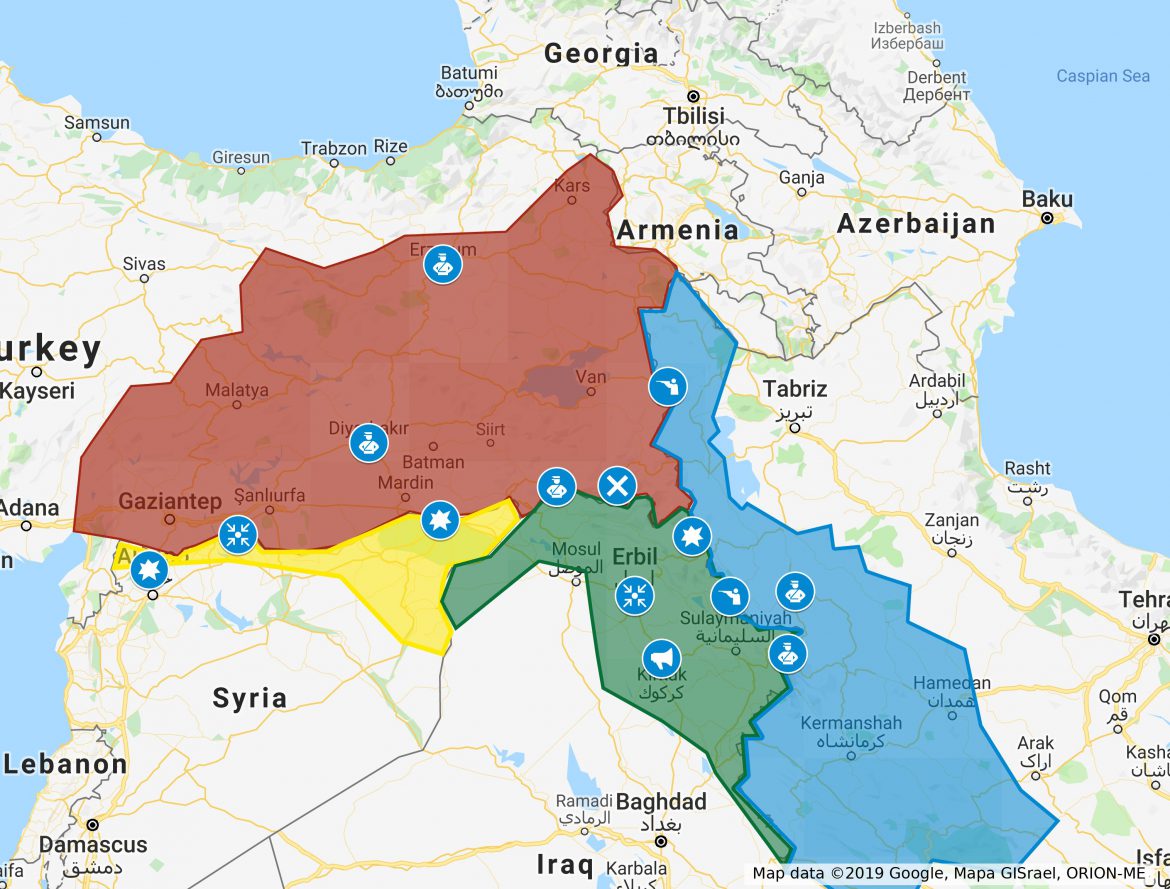1.3K
Iran
- On Wednesday, an Iranian artillery strike in the Sidakan District of Iraqi Kurdistan killed an 18-year-old woman and injured two of her brothers. The strike came a day after three members of the Iranian Revolutionary Guard Corps (IRGC) were killed by Kurdish rebels. Mohammad Osanlou, the IRGC commander in charge of Iran’s western Kurdish territories, accused entities in Iraqi Kurdistan of facilitating rebel operations on the Iranian side of the border in a statement issued to the regime-friendly Tasnim News Agency. On Friday, the IRGC announced it launched drone strikes on the positions of Kurdish parties near the Iran-Iraq border. The Kurdistan Regional Government in Iraq called upon the Iranian regime to stop attacks in the region, though it bears mentioning the Iranian regime has been targeting Kurdish opposition parties since its foundation in 1979.
- On Monday, Iranian border guards ambushed a group of Kurdish porters known as Kolbars near Sardasht, killing one and injuring three. The Kurdish rights group Hengaw reported the Iranian attack killed a Kolbar from Gawalani village named Byriarchi Ibrahimzada. On Saturday, Iranian forces attacked a group of Kolbars and severely wounded one near Khoy.
- Iranian intelligence officers (Ettela’at) detained five Kurdish members of an environmental initiative known as the Green Council in Marivan. Ettela’at also detained ten Kurds and accused them of political activism in Mehabad, Saqqez, Oshnavieh (Shino), and Bokan. Meanwhile, the Islamic Revolutionary Court of Urmia affirmed a seven-year prison sentence for a Kurdish man named Mohammed Hanoka. Hanoka was charged with “membership of a Kurdish opposition party.” According to the Kurdistan Human Rights Association (KMMK), 210 politically active Kurds have been detained since the beginning of 2019.
Iraq
- The Kurdistan Regional Government’s (KRG) newly-formed cabinet held its first meeting on Monday and issued several orders regarding administrative roles. Among other things, KRG ministers and employees are now required to abide by the standard working hours of the ministries and departments. On Tuesday, a delegation from the new KRG traveled to Baghdad and met with Iraqi officials to discuss various outstanding issues between Erbil and Baghdad. Among the issues discussed were the situation in the disputed territories and oil revenues. The new Prime Minister of Iraqi Kurdistan, Massrour Barzani, pledged to strengthen ties with Baghdad during his first speech as the new prime minister. On July 11, the Kurdistan Parliament also elected a new Speaker of Parliament, Rewaz Fayiq of the Patriotic Union of Kurdistan (PUK).
- In Kirkuk, a group of Arabs supporting the current acting governor, Rakan Saed al-Jibouri, protested the Kurdish parties’ agreement to elect a new Kurdish governor in the province. The protesters gathered in front of the governorate and chanted anti-Kurdish slogans while offering praise for Ba’athism and Saddam Hussein. Following the protests, police in Kirkuk issued an arrest warrant against one of the organizers for praising an entity that is banned by the Constitution of Iraq. The Iraqi government appointed a Sunni Arab governor in Kirkuk province after the Iraqi Kurdistan independence referendum of 2017.
Syria
- On Tuesday, U.S. officials announced that the United Kingdom and France have agreed to deploy additional ground forces to Syria. Though it is unknown exactly how many personnel each nation plans to commit, the announcement comes a day after Berlin rejected a U.S. request for the deployment of German ground troops. Coalition forces in Rojava fulfill the essential functions of supporting the continuing fight against Islamic State (Da’esh) terrorists and deterring potential invasions from the Assad regime and Turkey.
- Turkish government forces launched multiple indirect fire attacks on Kurdish-held areas in Aleppo Governorate on Sunday and Monday. Rockets reportedly struck the town of Tel Rifaat and the Menagh Air Base. Both locations were previously identified by Turkish nationalist media as “a natural extension of Turkey’s Afrin operation.” The attacks occurred as Turkey deployed a significant number of troops to its southeastern border in a sign of growing aggression toward the Syrian Kurds.
- A pair of bombings targeted civilians in northeastern Syria last week. On Thursday, a car bomb detonated outside an entrance to the city of Afrin, killing 11 and wounding several others, including children. Later that day, another car bomb exploded outside a church in Qamishli and injured 12. Da’esh claimed responsibility for the second attack.
Turkey
- On Wednesday, Turkish police detained the former mayors of Uludere of Sirnak. Turkish police also detained ten Kurds in Erzurum, including the co-mayor of Karayazi. In Diyarbakir, Turkish police arrested the head of the Dicle branch of the Democratic Regions Party (DBP). Simultaneously, the Turkish military continued military operations in the Kurdish region of Turkey targeting the Kurdistan Workers’ Party (PKK). In Hakkari, Turkish military forces declared 15 “security zones” for the alleged purpose of facilitating operations against PKK militants.
- Following ten months of imprisonment and a 200-day hunger strike, Kurdish politician Leyla Guven was finally sworn in on Wednesday to take a seat in the Turkish Parliament she won in June 2018. In November 2018, Guven launched a hunger strike protesting the treatment and isolation of Kurdish political prisoners in Turkey. Guven’s first request as a lawmaker was to improve the treatment of prisoners who have carried out hunger strikes.
- Imprisoned Kurdish leader Abdullah Ocalan’s attorneys filed another request for visitation with the Turkish government last week. Following the ruling Justice and Development Party’s (AKP) defeat in the Istanbul rerun election, the Turkish government has denied all visitation requests from Ocalan’s family and attorneys. The Turkish government previously granted Ocalan’s attorneys and relatives three visits as a means of courting Kurdish voters prior to the Istanbul rerun election.

